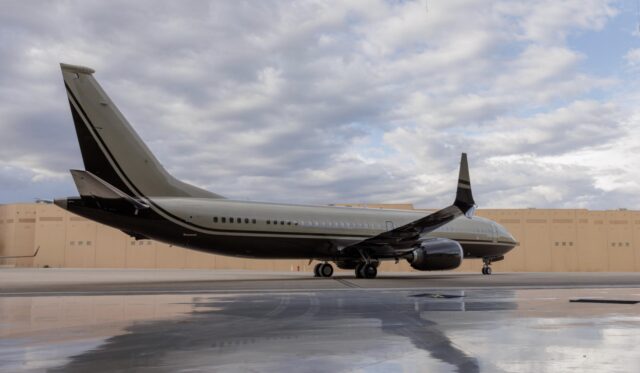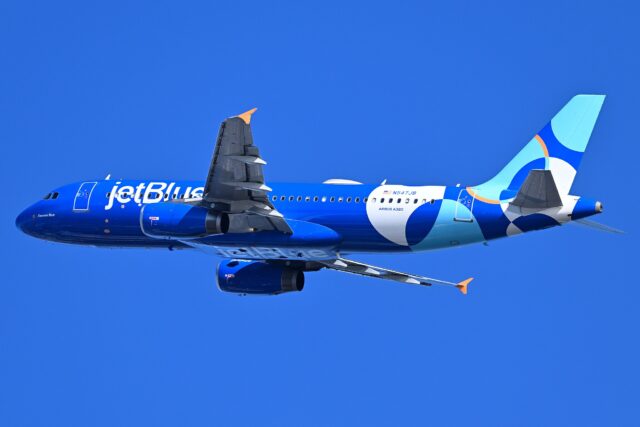‘Chaos at every checkpoint’: Facial recognition cuts wait times by 60%—but the US may shut it down

July 29, 2025

As the US Senate Commerce Committee prepares to mark up the Traveller Privacy Protection Act of 2025, leading aviation groups are sounding the alarm. The Act would severely restrict the rollout of facial recognition and other biometric technologies in the US, which is bad news for passengers.
In a joint letter to lawmakers, Airlines for America, Airports Council International – North America, and the US Travel Association warn that the bill would derail years of digital transformation, undermine security, and increase wait times for travellers.
The letter, sent July 28 to Committee Chairman Sen. Ted Cruz and Ranking Member Sen. Maria Cantwell, calls for the Senate to delay consideration of the bill and instead engage directly with industry stakeholders to develop “a balanced approach to biometric regulation.”
“The bill and the Amendment in the Nature of a Substitute (ANS) would severely restrict the Transportation Security Administration’s (TSA) current authority to use biometrics and facial recognition technology (FRT), which significantly enhances national security and improves the travel experience,” the letter seen by AGN states.
What is the Traveller Privacy Protection Act of 2025?
The proposed Traveller Privacy Protection Act legislation—S.1691 —currently under review by the US Senate Commerce Committee, aims to significantly limit the Transportation Security Administration’s (TSA) use of biometric technologies such as facial recognition.
The bill, along with an Amendment in the Nature of a Substitute (ANS), would prohibit TSA from capturing, collecting, storing, or processing biometric information from travellers by default. Instead, it proposes an “opt-in” model that would only allow biometric screening when passengers give explicit consent.
While the legislation is intended to safeguard civil liberties and prevent the potential misuse of biometric data, critics argue that it would undermine years of investment in airport security and digital transformation.
The joint letter states that the move “jeopardises the Trump Administration’s recent success in modernising airport screening with the implementation of One Stop Security, the enforcement of REAL ID, and the end of the ‘shoes off’ policy.”
They suggest the bill would hinder modernisation efforts at a time of rising travel demand and major upcoming global events.

“FRT is used today at airports and by airlines across the country in a way that makes air travel safe, secure, and more efficient while ensuring the protection of traveller privacy,” the letter states. “The future of seamless and secure travel relies on the appropriate use of this technology.”
Citing TSA’s PreCheck Touchless ID system, which can more than double checkpoint throughput compared to manual ID checks, the industry warns that the bill would:
- Undermine REAL ID enforcement and allow “bad actors to choose manual ID checks while avoiding highly accurate biometric screening.”
- Increase passenger wait times by slowing down identity verification at checkpoints.
- Block staffing efficiencies, “forcing 75% of TSA’s budget to remain tied to staffing rather than technology investment.”
- Obstruct innovation, such as automated e-gates and biometric self-service tools.
- Diminish the U.S.’s global competitiveness in aviation modernisation.
The letter warns that the biometric ban would “create an overwhelming and chaotic environment at every airport security checkpoint.”
Facial recognition reduces passenger wait times up to 60%
As the US prepares to host the 2026 FIFA World Cup, America’s 250th anniversary in 2026, and the 2028 Summer Olympics, stakeholders warn that passage of the bill could create unnecessary bottlenecks and degrade the traveller experience just as demand peaks.
The SITA 2024 Air Transport IT Insights report backs some of the claims in the letter on the benefits of biometric identity technology. It shows:
- Biometrics increase airport throughput by 30%.
- Digital IDs enabled by biometric technology can reduce boarding times by 30%
- Wait times are reduced by up to 60%.
The air travel industry is already deeply invested in biometric identity solutions across various stages of the passenger journey.

According to SITA:
- 41% of airlines have implemented biometric-enabled self-boarding, and another 37% plan to implement the technology by 2027.
- 30% of airports have implemented biometric-enabled self-check-in, and 45% plan to do so by 2027.
- 19% of airports have implemented biometric-enabled baggage drop, and 46% plan to do so by 2027.
- 43% of airports have already installed a self-boarding ‘biometric-enabled’ system, and 31% plan to do so by 2027.
- 52% of airports have adopted biometric-enabled border controls, and 21% plan to do so by 2027.
- 28% of airlines and 43% of airports see biometric identity management solutions for passengers and staff as an essential technology investment
Privacy and trust are still priorities for airlines and airports in biometric technology adoption
Despite their support for biometrics, industry stakeholders do not ignore public concerns around data privacy. According to SITA, 50% of airlines and airports identify data privacy and security as top concerns in adopting the technology.
“This is unsurprising given the nature of the passenger information involved and suggests that building a robust infrastructure—both from a technology and training and process point of view—will be fundamental to the continued adoption of Biometrics,” SITA states in its report.

SITA suggests that the continued adoption of biometric technology to ease the travel process requires a high level of trust among passengers, calling for effective communication and transparency.
The July 28 letter emphasises that TSA already follows a “robust and government-leading privacy framework,” including:
- Photo deletion policies
- Passenger opt-outs
- Rigorous testing and oversight
“Restricting TSA’s use of biometrics is a step backward for our national security,” the letter says, citing over 2,200 impostors identified by CBP’s biometric systems since 2018—threats that could have gone undetected through manual screening.
A call for balanced policy, not a blanket biometric ban
The letter also calls out the Committee’s process, noting that the bill has advanced without a public hearing or formal input from industry experts.
“We greatly appreciate the collaborative and transparent approach the Committee has previously taken for other major legislative efforts, including air traffic control modernisation and TSA reauthorization,” the letter states. “It is unfortunate that the same has not been done for this piece of legislation.”
The industry urges lawmakers to work together on biometric rules that preserve civil liberties, security, and operational efficiency.
“To meet the needs of tomorrow’s travellers, we must strike a careful balance between innovation and individual rights—without freezing progress in place,” the letter concludes.
On July 30, the Senate Commerce Committee will review the legislation. There is a hope among industry groups that lawmakers will pause to reconsider what they see as sweeping and counterproductive legislation.
















